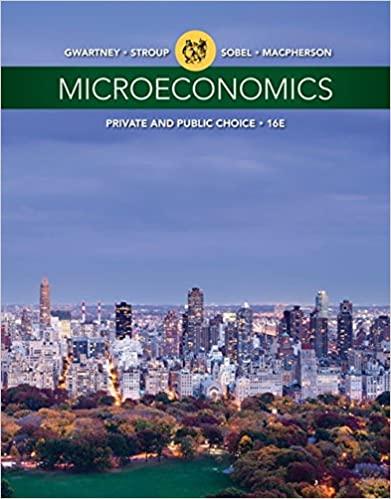Historically, in many cities, taxi fares were often way above the market equilibrium rate, due to government
Question:
Historically, in many cities, taxi fares were often way above the market equilibrium rate, due to government licensing restrictions. In essence, these taxi cartels used government laws to earn excess pro ts by erecting barriers to entry. However, modern ride-sharing services such as Uber have found innovative ways to bypass these government restrictions, and protests by the taxi industry have been frequent. In some cases, governments responded by banning Uber. Compare and contrast resource allocation and market outcomes under the restricted license system and a competitive system. In which case will it be easier (and cheaper) for customers to get a ride?
Do you think governments should ban Uber to increase the pro ts of taxi drivers? Why or why not?
Step by Step Answer:

Microeconomics Private And Public Choice
ISBN: 9781305506893
16th Edition
Authors: James D. Gwartney, Richard L. Stroup, Russell S. Sobel, David A. Macpherson






